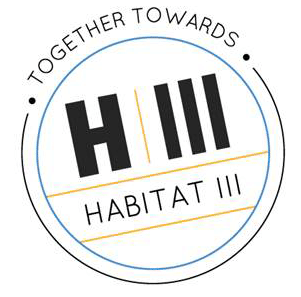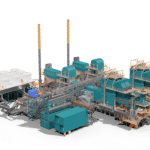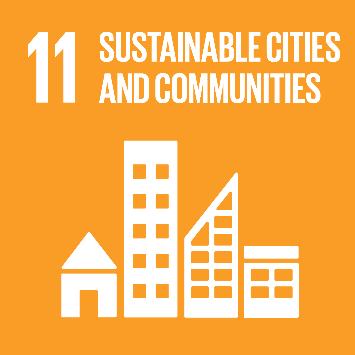WOIMA aligning with UN Sustainable Development Goals (SDG)
Goal 11: Make cities inclusive, safe, resilient and sustainable
Cities are hubs for ideas, commerce, culture, science, productivity, social development and much more. At their best, cities have enabled people to advance socially and economically.
However, many challenges exist to maintaining cities in a way that continues to create jobs and prosperity while not straining land and resources. Common urban challenges include congestion, lack of funds to provide basic services, a shortage of adequate housing and declining infrastructure.
The challenges cities face can be overcome in ways that allow them to continue to thrive and grow, while improving resource use and reducing pollution and poverty. The future we want includes cities of opportunities for all, with access to basic services, energy, housing, transportation and more.
- Half of humanity – 3.5 billion people – lives in cities today
- By 2030, almost 60% of the world’s population will live in urban areas
- 95% of urban expansion in the next decades will take place in developing world
- 828 million people live in slums today and the number keeps rising
- The world’s cities occupy just 3% of the Earth’s land, but account for 70% of energy consumption and 75% of carbon emissions
- Rapid urbanization is exerting pressure on fresh water supplies, sewage, the living environment, and public health
- But the high density of cities can bring efficiency gains and technological innovation while reducing resource and energy consumption
WOIMA is committed to helping the developing countries to make cities safe, inclusive and sustainable. The tool is our modular wasteWOIMA® waste-to-energy power plant that will
- incinerate cleanly the waste of 100,000 – 500,000 people
- generate affordable energy for 50,000 – 100,000 people
- employ 100 – 200 people
- generate hundreds of jobs and training opportunities up- and downstream
- save 100,000 tons of CO2 equivalent emissions per year
- be up and running within 12 months
UN has set the following targets by 2030, supported by WOIMA and our modular wasteWOIMA® waste-to-energy power plant
- Ensure access for all to adequate, safe and affordable housing and basic services and upgrade slums
- Provide access to safe, affordable, accessible and sustainable transport systems for all, improving road safety, notably by expanding public transport
- Enhance inclusive and sustainable urbanization and capacity for participatory, integrated and sustainable human settlement planning and management in all countries
- Strengthen efforts to protect and safeguard the world’s cultural and natural heritage
- Significantly reduce the number of deaths and the number of people affected by disasters, including water-related disasters
- Reduce the adverse per capita environmental impact of cities, including air quality and municipal and other waste management
- Provide universal access to safe, inclusive and accessible green and public spaces
- Support positive economic, social and environmental links between urban, peri-urban and rural areas by strengthening national and regional development planning
- Substantially increase the number of cities and human settlements adopting and implementing integrated policies and plans towards inclusion, resource efficiency, mitigation and adaptation to climate change
- Support least developed countries in building sustainable and resilient buildings utilizing local materials
Read more about the UN SDGs at
https://www.un.org/sustainabledevelopment/sustainable-development-goals/
 The United Nations Conference on Housing and Sustainable Urban Development took place in Quito, Ecuador from 17-20 October 2016, and was the first UN global summit on urbanization since the adoption of the 2030 Agenda for Sustainable Development.
The United Nations Conference on Housing and Sustainable Urban Development took place in Quito, Ecuador from 17-20 October 2016, and was the first UN global summit on urbanization since the adoption of the 2030 Agenda for Sustainable Development.
Habitat III offered a unique opportunity to discuss the important challenges of how cities, towns, and villages can be planned and managed, in order to fulfil their role as drivers of sustainable development, and how they can shape the implementation of the SDGs and the Paris Agreement on climate change.
In Quito, world leaders adopted the New Urban Agenda which set global standards of achievement in sustainable urban development, rethinking the way we build, manage, and live in cities through drawing together cooperation with committed partners, relevant stakeholders, and urban actors at all levels of government as well as the civil society and private sector.
Read more about UN Habitat III at
https://unhabitat.org/
Contact WOIMA to learn more on how we can change the world together.
WOIMA Social Media accounts






